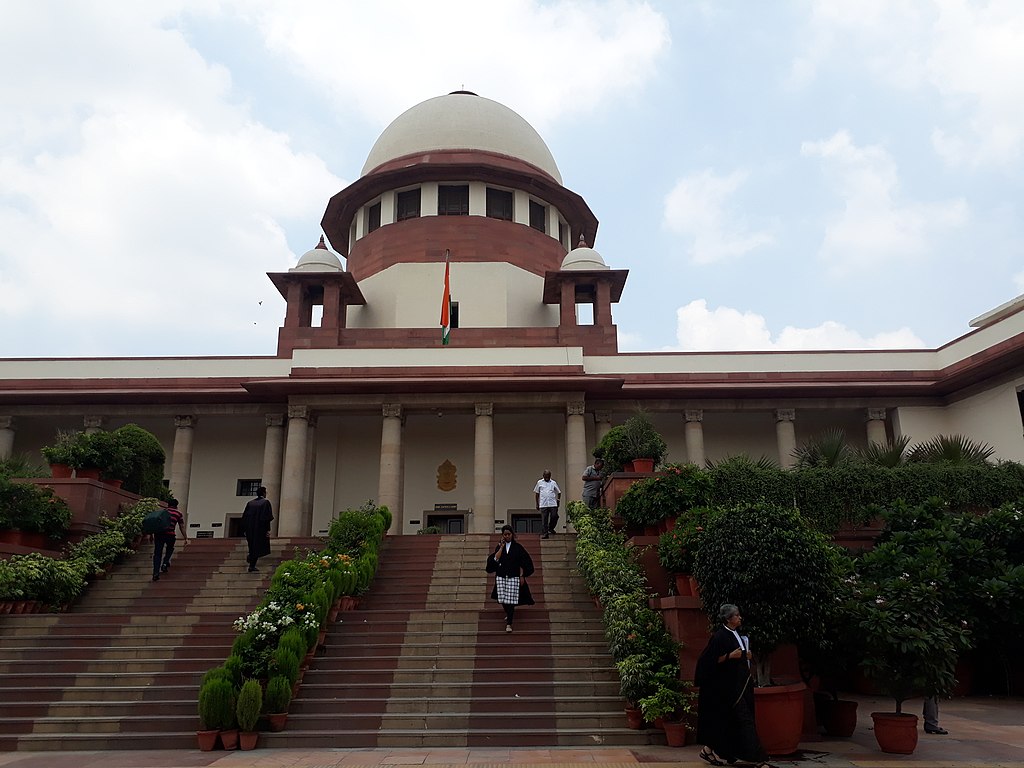New Delhi: Refraining from passing an order for restoration of 4G services, the Supreme Court (SC) Monday constituted a special committee to look into the prevailing circumstances and immediately determine the necessity of the continuation of the restrictions in the Union Territory of Jammu and Kashmir (J&K).
A three-judge bench of the apex court comprising Justices NV Ramana, R Subhash Reddy and BR Gavaiconstituted a special committee headed by Union Home Secretary Ajay Bhalla and comprising the Union Ministry of Communications Secretary and the Chief Secretary of Jammu and Kashmir to look into the apprehensions raised by the petitioners.
The bench said that since the issues involved affect the state, and the nation, the Review Committee which consists of only state level officers, may not be in a position to satisfactorily address all the issues raised.
“The Special Committee is directed to examine the contentions of, and the material placed herein by, the petitioners as well as the respondents. The aforesaid Committee must also examine the appropriateness of the alternatives suggested by the petitioners, regarding limiting the restrictions to those areas where it is necessary and the allowing of faster internet (3G or 4G) on a trial basis over certain geographical areas and advise the J&K administration regarding the same, in terms of our earlier directions,” the bench said.
“This Court is cognizant of the importance of these matters for the national security concerns, and takes the same with utmost seriousness to ensure that citizens enjoy life and liberty to the greatest possible extent. National security concerns and human rights must be reasonably and defensibly adjusted with one another, in line with the constitutional principles,” the bench added.
May 4, the court had reserved order in the petitions filed by Foundation of Media Professionals, Private Schools Association of J&K and Soayib Qureshi. The petitioners had challenged the decision of the J&K administration and the Union government to impose restriction on internet in the state. Currently, only 2G services are functional in the UT.
Arguments of petitioners
The petitioner argued in the court that in the existing COVID19 situation, when there is a national lockdown, the restrictions imposed on the residents of the entire Union Territory of Jammu and Kashmir impacts their right to health, right to education, right to business and right to freedom of speech and expression.
The petitioners further submitted that access to internet acquires even more importance under the prevailing circumstances in the country, relating to the pandemic. The petitioners contended that the fulfilment of the right to health is dependent on the availability of effective and speedy internet in order to access medical services and information on containment strategies.
“The denial of such critical information not only violates the peoples’ right to receive information, but is also a denial of their right to health. Furthermore, the restrictions on internet speed directly impacts the students of Jammu and Kashmir to exercise their right to education as they are unable to access to elearning services such as online video classes, and other online educational content,” petitioners submitted
Significantly, Attorney General KK Venugopal preliminarily contended that courts should not step into issues of national security which are best left to those in charge of policy making. He submitted that the claims of fundamental rights have to be examined against the larger public interest of protecting the security of the state, wherein, while balancing the aforesaid conflicting rights, the security of the nation should triumph against the fundamental rights of the citizens.
PNN
